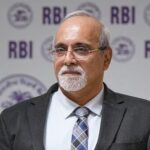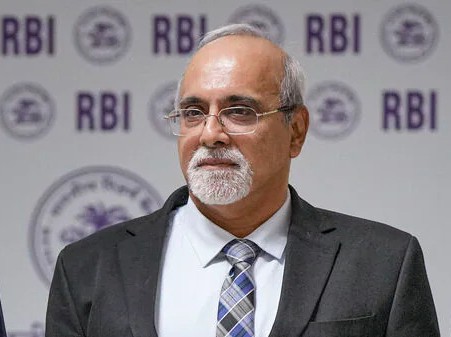As Shri M. Rajeshwar Rao concludes his distinguished tenure as Deputy Governor of the Reserve Bank of India (RBI) on October 8, 2025, it is an opportune moment to reflect on his significant contributions to India’s financial landscape. Appointed on October 9, 2020, Shri Rao’s leadership spanned pivotal phases, including the post-pandemic economic recovery and the evolving challenges of global financial integration.
Career Overview
Shri Rao’s association with the RBI commenced in 1984, marking the beginning of a distinguished career in central banking. Before his elevation to Deputy Governor, he served as Executive Director, overseeing critical departments such as Financial Markets Operations, International Operations, Internal Debt Management and the Secretary’s Department. His extensive experience encompassed roles in the Risk Monitoring Department, Foreign Exchange Department, and Banking Regulation Department, as well as postings in regional offices across Ahmedabad, Hyderabad, Chennai and New Delhi.
In his capacity as Deputy Governor, Shri Rao was entrusted with the oversight of several key departments:
- Department of Regulation: Formulating and implementing regulatory policies to ensure the stability and soundness of India’s financial institutions.
- Department of Communication: Enhancing the RBI’s engagement with the public and stakeholders through effective communication strategies.
- Enforcement Department: Ensuring compliance with regulatory norms and taking corrective actions where necessary.
- Legal Department: Providing legal counsel and support to uphold the RBI’s regulatory framework.
- Risk Monitoring Department: Assessing and mitigating risks within the financial system to maintain its integrity.
Additionally, Shri Rao represented the RBI in prominent international forums, including the Financial Stability Board (FSB) and the Network for Greening the Financial System (NGFS). His participation in the Markets Committee of the Bank for International Settlements (BIS) further underscored his global engagement in financial regulatory matters.
Strategic Contributions and Policy Initiatives
Transition to Principle-Based Regulation
One of Shri Rao’s most significant contributions was advocating for RBI’s gradual shift toward principle-based and outcome-based regulations. This approach aimed to provide regulated entities with operational flexibility while ensuring adherence to robust regulatory standards. In his address at IIM Kozhikode in August 2025, he articulated this strategic vision:
“We at the Reserve Bank are gradually shifting towards principle and outcome-based regulations, as it gives operational flexibility to the regulated entities for conduct of their operations and allows them to tailor their activities to their unique needs.”
This approach represented a fundamental change in regulatory philosophy, moving away from rigid rule-based frameworks to more flexible, mature market-oriented regulations that encourage innovation while maintaining financial stability.
Enhancement of Regulatory Clarity
Shri Rao emphasized the importance of making regulations more accessible and understandable for regulated entities. Under his guidance, RBI began incorporating examples, FAQs and illustrations in regulatory documents, significantly improving compliance understanding and implementation.
Climate Finance and Sustainable Banking
Shri Rao emerged as a champion of climate-aware banking regulations, recognizing the existential threat climate change poses to financial stability. In his speeches, he consistently highlighted India’s massive financing needs, estimated at $160 billion annually to meet climate commitments. He warned that climate risks “can wipe out the assets created from institutional finance, thereby impacting the health of financial institutions,” advocating for comprehensive risk management frameworks that account for climate-related risks. His work laid the groundwork for RBI’s upcoming disclosure framework for climate-related financial risks.
Financial Inclusion and Technology Integration
Recognizing the dual nature of technological advancement, Shri Rao consistently advocated for robust cybersecurity measures alongside digital innovation. He regularly participated in cybersecurity awareness campaigns, including flagging off walkathons to promote safe digital banking practices.
Legacy and Strategic Impact
Shri Rao’s tenure at the RBI is characterized by a commitment to modernization, transparency, and global integration. His strategic initiatives have laid a strong foundation for the RBI’s future endeavours, particularly in areas such as sustainable finance and digital innovation. The principles and frameworks established during his leadership are expected to continue influencing the RBI’s policies, ensuring that India’s financial system remains resilient and adaptive in the face of evolving global challenges.
As Shri M. Rajeshwar Rao steps down, his legacy as a visionary leader who navigated complex financial landscapes with foresight and integrity will undoubtedly continue to inspire and guide the Reserve Bank of India in its mission to foster a secure, dynamic, and resilient financial system for the nation.








